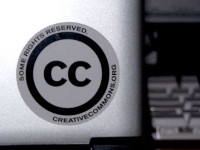In the aftermath of the Supreme Court of Canada’s 2012 copyright pentalogy that strongly affirmed the importance of user’s rights and the need for a broad, liberal interpretation for fair dealing, Access Copyright insisted that the decisions did not mean what they said. While educational groups developed reasonable fair dealing guidelines based on the decisions (along with earlier decisions such as the CCH case and the inclusion of education within the fair dealing purposes in 2012 reforms), Access Copyright argued that the copying required its licence and that fair dealing guidelines based on general percentages could not be used.
Last Friday, the Copyright Board of Canada issued its latest decision on the application of fair dealing to educational copying, providing yet another resounding blow to Access Copyright’s view of copyright. The Board created a tariff for copying in K-12 schools that was a fraction of what the copyright collective had wanted. It initially asked for $15 per full time student. By the time the issues had been fully assessed, the Board granted a tariff of $2.46 per student for 2010-2012 and $2.41 for 2013-2015. That rate is not only far lower than Access Copyright had demanded, but is nearly half of what was previously certified for the period from 2005-2009 (which was set at $4.81). The Board minced no words in explaining the reduction:











